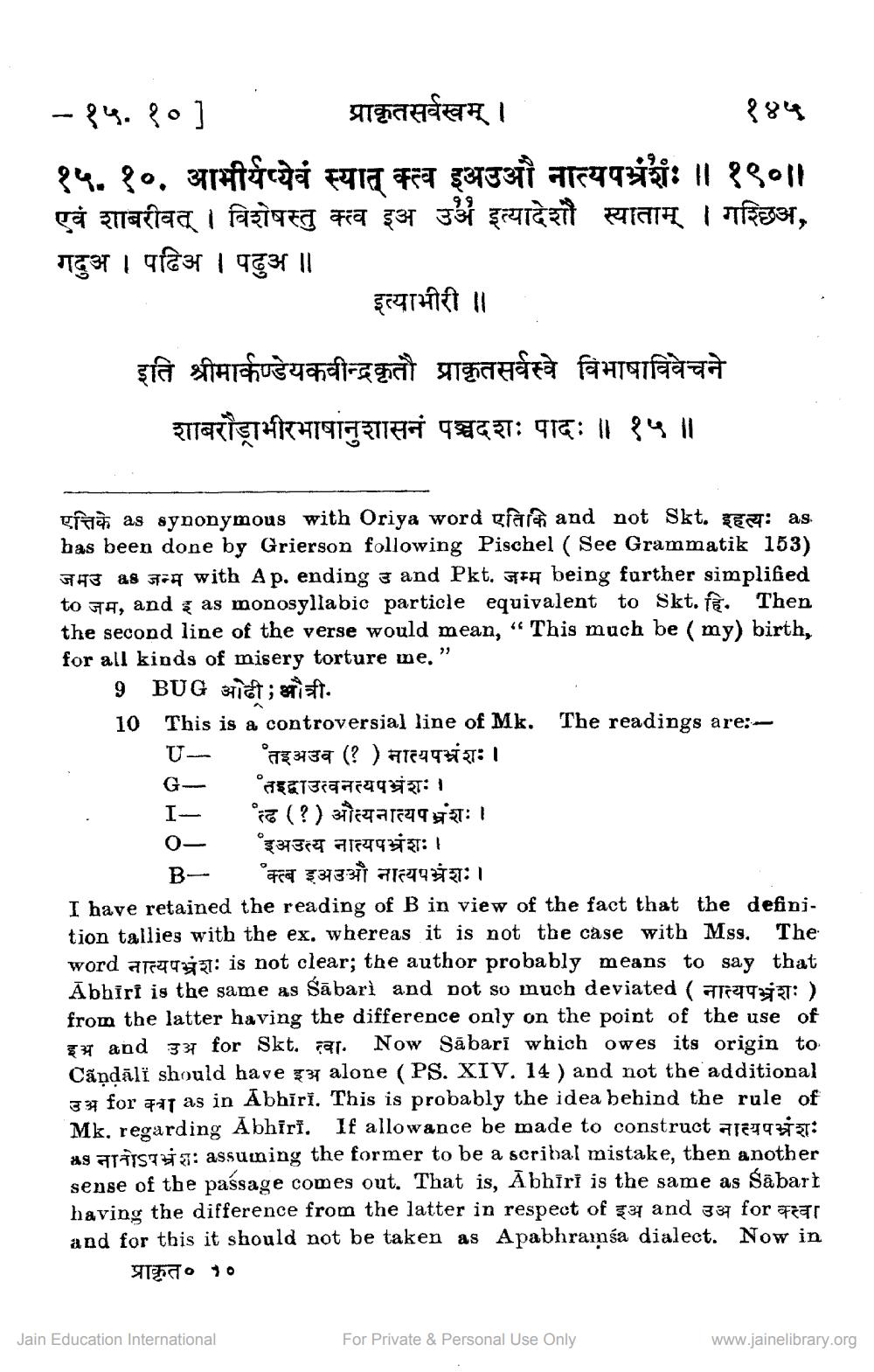________________
१४५
- १५. १०] प्राकृतसर्वखम् । १५. १०. आभीर्यप्येवं स्यात् क्त्व इअउऔ नात्यपभ्रंशः ॥ १९०॥ एवं शाबरीवत् । विशेषस्तु क्त्व इअ उअ इत्यादेशौ स्याताम् । गश्छिअ, गदुअ । पढिअ । पदुअ॥
इत्याभीरी ॥ इति श्रीमार्कण्डेयकवीन्द्रकृतौ प्राकृतसर्वस्वे विभाषाविवेचने
शाबरौड्राभीरभाषानुशासनं पञ्चदशः पादः ॥ १५ ॥
एत्तिके as synonymous with Oriya word एतिकि and not Skt. इहत्यः as has been done by Grierson following Pischel ( See Grammatik 153) जमउ as जन्म with Ap. ending उ and Pkt. जम्म being further simplified to FA, and as monosyllabic particle equivalent to Skt. fg. Then the second line of the verse would mean, “ This much be (my) birth, for all kinds of misery torture me."
9 BUG ओढी ; औत्री. 10 This is a controversial line of Mk. The readings are:--
U- तइअउव (? ) नात्यपभ्रंशः। ___G- तइद्वाउत्वनत्यपभ्रंशः। ___ I- ढ (?) औत्यनात्यपभ्रंशः।
0- इअउत्य नात्यपभ्रंशः।
B- क्त्व इअउऔ नात्यपभ्रंशः। I have retained the reading of B in view of the fact that the definj. tion tallies with the ex, whereas it is not the case with Mss. The word arranja: is not clear; the author probably means to say that Abhiri is the same as Sabari and not so much deviated ( नात्यपभ्रंशः ) from the latter having the difference only on the point of the use of इअ and उअ for Skt. स्वा. Now Sabari which owes its origin to Candali should have इअ alone (PS. XIV. 14 ) and not the additional 32 for wat as in Abhiri. This is probably the idea behind the rule of Mk. regarding Abhiri. If allowance be made to construct नात्यपभ्रंशः as ATŪSTUS: assuming the former to be a scribal mistake, then another sense of the passage comes out. That is, Ābhiri is the same as Śābart having the difference from the latter in respect of 53 and 337 for and for this it should not be taken as Apabhrainsa dialect. Now in
प्राकृत...
Jain Education International
For Private & Personal Use Only
www.jainelibrary.org




